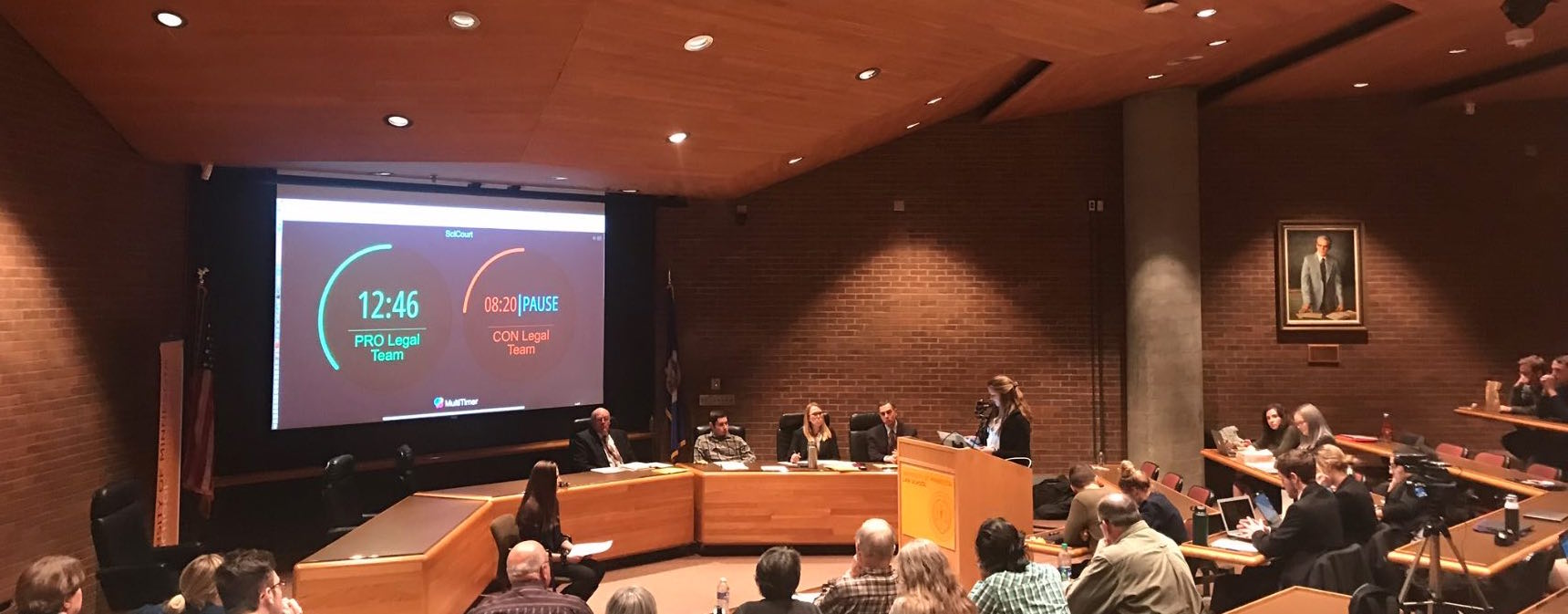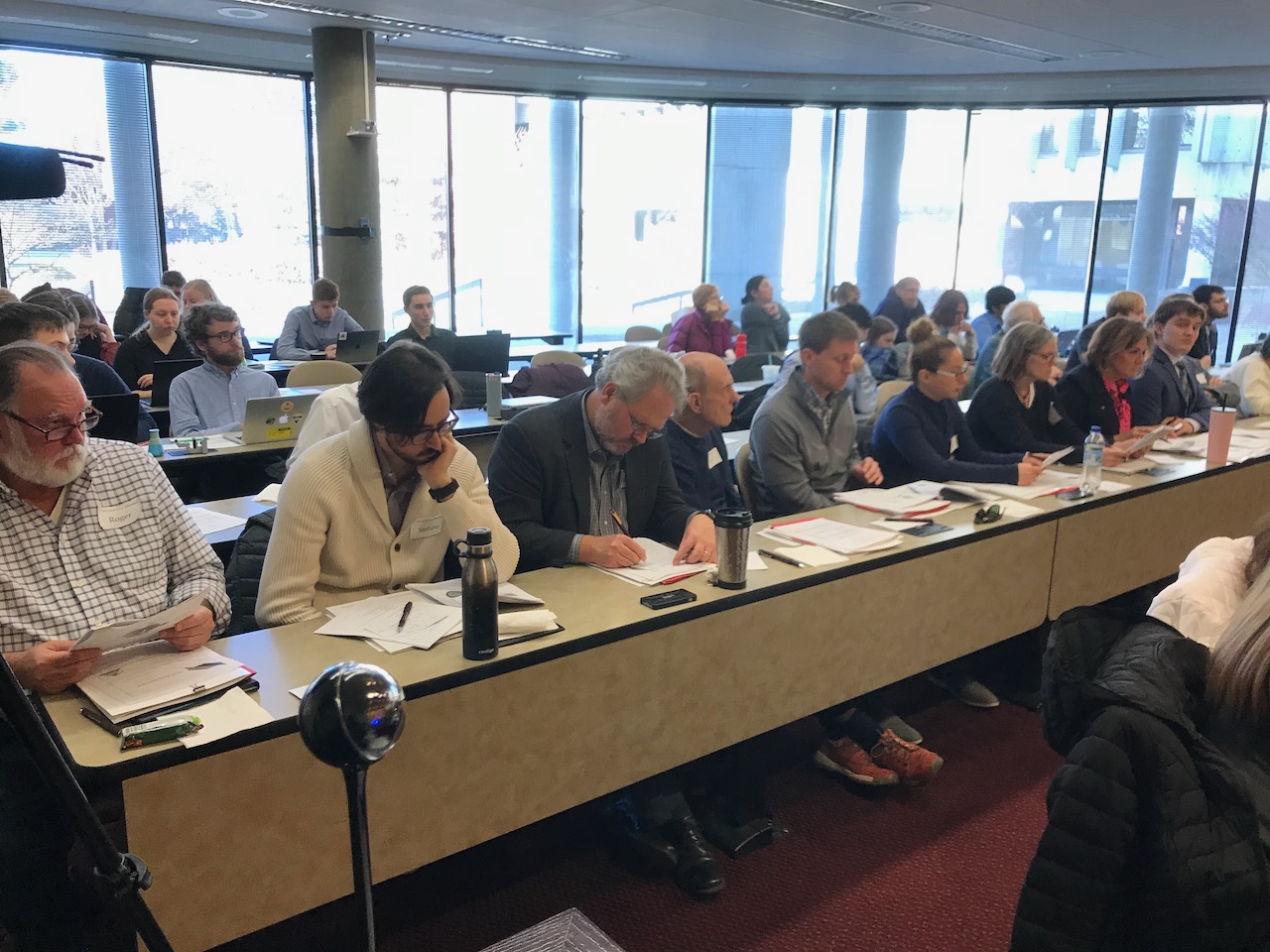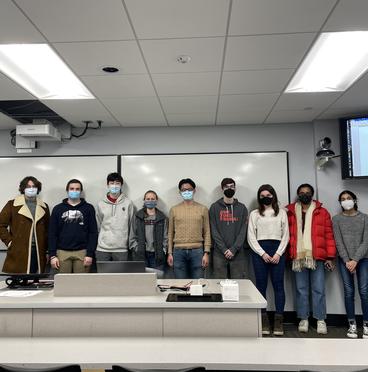
Welcome to Science Court!
Science Court is a project designed to combat polarization in American society and strengthen democracy. It is run as an interdisciplinary course in the University of Minnesota Honors Program involving students from across the university. The students select a controversial issue and spend an entire semester studying it in depth to determine the facts (based on sound scientific research) and then argue it in a mock trial in front of a jury of citizens with a mix of views and backgrounds. The public is engaged through compelling audio, video and online content generated by the students about the preparations, trial and verdict. The trial is free and open to the public.



The 2022 Science Court case is
Grading practices at the University of Minnesota can lead to bias, stress, and disincentivize learning, new innovative student assessment methods should be adopted
This year's Science Court is in partnership with the University of Minnesota (UMN) Student Senate. This topic is inspired by a Student Senate resolution, approved on December 3, 2020, requesting an extension of the UMN policy allowing students to opt for S/N grading (Satisfactory/Not satisfactory) in any course due to the COVID-19 pandemic. The Science Court case generalizes this to a full reevaluation of how students are assessed at UMN. This is timely considering increasing concerns regarding student mental health, the increased emphasis on student diversity and equity, changes in how students learn due to the technological environment, the increase in scholastic dishonesty facilitated by the internet and social media, and the rise of remote learning.
Science Court will consider student assessment holistically exploring what is known from scientific research in domains of knowledge informing this topic and propose two main strategies, Refine versus Reform, for the Student Senate to consider.
- The "Reform" (pro) approach proposes to replace the current UMN system with alternative methods for grading and student assessment proposed in the literature and tested at other institutions.
- The “Refine” (con) approach will argue to largely retain the current UMN grading system with modifications aimed at addressing its limitations based on research findings.
Stay tuned or follow us on twitter or join the Science Court mailing list to be kept informed.
LATEST BLOG POSTS
Curious About How the Trial Runs?
The 2022 Science Court trial on whether the current grading system at the U should be refined or reformed will take place on Saturday, April 23. If you’re new to the Science Court system, you may be wondering what does the trial involve? Is it like a normal jury trial? How long does it last? Here’s what jurors – and any general public who chooses to attend – can expect from a Science Court trial.
We’ll start at 9AM with a brief background on the principles behind Science Court and the introduction to the case from Professor Ellad Tadmor. We’ll then hold a series of sessions, where the science team will present information about specific topics pertaining to the case, before being questioned by the legal team. The two legal teams will hold a rebuttal session before we open up for jury questions. Finally, we’ll hold closing arguments, the jury will deliberate and announce the verdict the next day.

The 2019 Jury
What We Learned from Four Grading Experts Who Visited SciCourt
We heard the opinions of several expert witnesses this week. First, Prof. Nathan Kuncel (Psychology) discussed research that reviews the purposes of higher education. Prof. Sue Wick (Biological Sciences) then discussed some of the limitations to the University of Minnesota’s current grading system from a mental health standpoint. Vice Provost and Dean of Undergraduate Education Robert McMaster outlined some of the rationale for the current grading system and potential barriers to implementing a change. Lastly, Prof. Michael Rodriguez (Educational Psychology) shared a perspective on possible systematic issues with the current grading system.
To Prof. Nathan Kuncel, We Must First Discuss the Purposes of Education
Professor Kuncel outlined the different perspectives on why students work towards undergraduate degrees:
Meet Our Science, Legal, and Media Teams
To best utilize our diverse skill sets, we have divided the Science Court Class into three teams: science, legal, and media. The science team will be mainly responsible for conducting research on important domains that pertain to our topic. The legal team will use this information and be further divided into two subteams to formulate opposing arguments about grades.The media team will keep you updated on all of these processes along the way.
